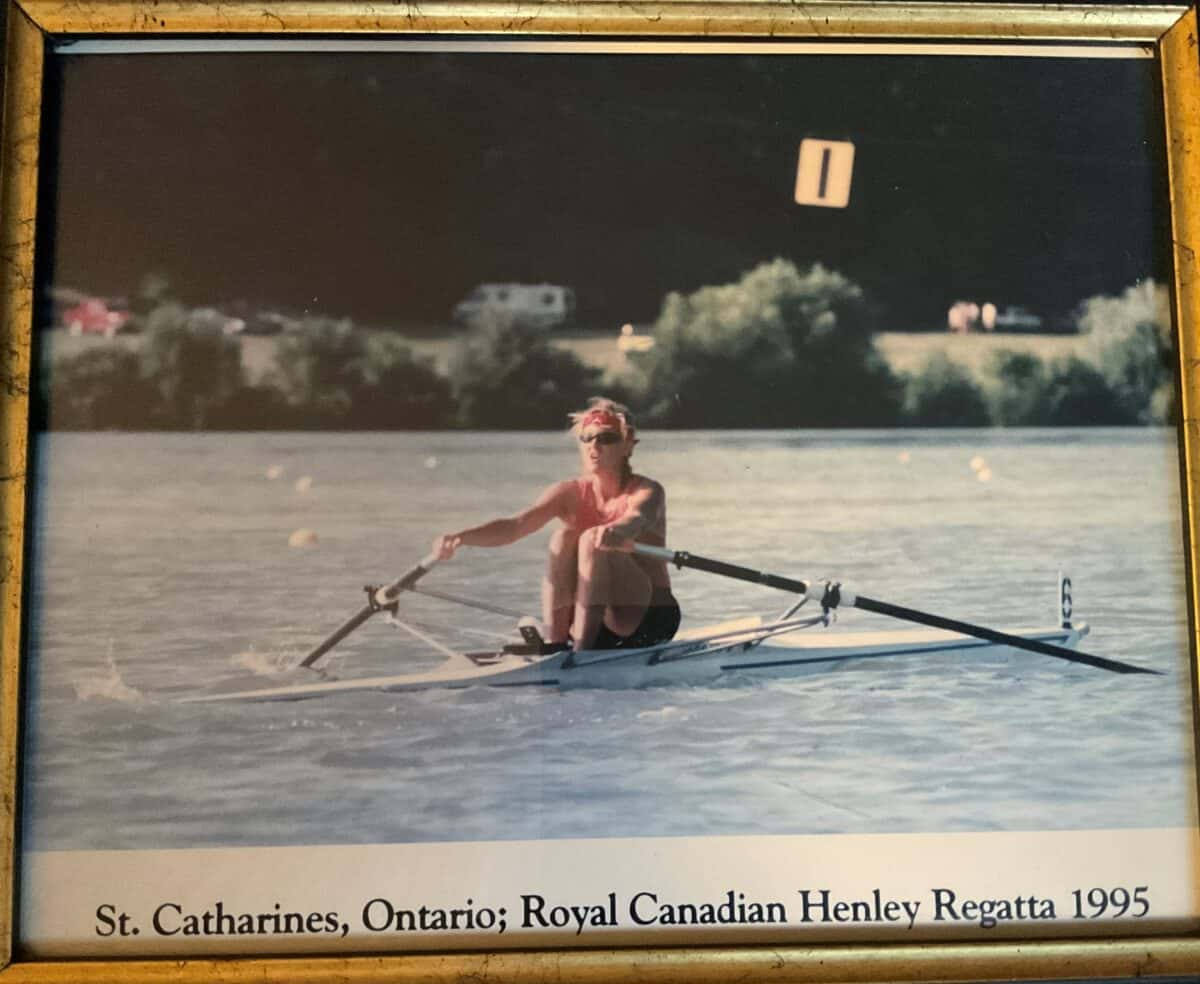
05 Apr 2022
One Rowing Stroke at a Time - Surviving Stage 3 Cancer for 20-Years: Book Review

Beth Gardner, cancer survivor and rower, based in the USA, recently published the book One Rowing Stroke at a Time – Surviving Stage 3 Cancer for 20-Years. World Rowing interviewed Gardner to understand her motivations to write her book and how she drew on rowing to help tell her story.
Motivated by family
Gardner started rowing in her final year at Drexel University in 1993 in the US when she saw “a colourful poster about trying out for crew”. After her first practice on the water, Gardner recalls how she immediately “fell in love with the sport”. As a daughter to a US Navy veteran, her family had a close affinity for water and boats. Coached by Olympian Ted Nash and Igor Grinko, Gardner went on to compete at the elite level in the 1990s, including training from the US National Sculling centre and winning the women’s single sculls in the Ohio Head of River in 1995.
Part of her drive came from her older brother Todd Gardner, who sadly passed away recently. Her brother had cerebral palsy and Beth Gardner attributes her own rowing success to him: “I had given all of my medals to my brother because they had always been won in his spirit”.
Her brother also motivated her to stay strong when she was diagnosed with stage three breast cancer at the age of 30, just one year after retiring from elite rowing in 1999. Gardner says, “It was because of his strength that I dug deep to find the strength to battle the silent killer of cancer. I had no excuse to not try to beat the disease after having grown up watching Todd struggle in so many physical ways throughout life.”
Journaling during treatment and recovery
While receiving treatment, Gardner was instructed by her oncology nurses to start a journal. She began in 2001, and it took one year for her to realise that “the journal entries had the makings for a book”. However, despite finishing the journals in 2004, Gardner was reluctant to publish her work and left her writing dormant. She says, “my instincts said to give it time and not move forward to publish the book. I had not reached the 5-year remission mark, and I didn’t want to jinx myself.”
However, nearly two decades later, during the pandemic in Pittsburgh in March 2020, Gardner started to worry about how others battling cancer would cope with lockdown and set about working on finishing the book to inspire both rowers and cancer patients, based on her own life story. She reflects, “it was because of the pandemic that I chose to pull out the manuscript, edit it, then move it forward with publishing the book.”
Drawing on the lessons of rowing and coaching
During her treatment, Gardner scaled down her rowing, not helped by having to sell her beloved Empacher single scull to pay for her mounting medical expenses. Instead, in the summer of 2001, she found joy in coaching the Bachelor’s Barge Club. Gardner says, “Coaching was therapeutic for me because it was a way to give back to the community. They were a lot of fun to be around, often causing me to laugh out loud.”
Gardner’s coaching background translated into making the book more accessible, drawing from her experience meeting a range of athletes with “their own style of learning”, including how visual descriptions really resonated with some of her rowers. Her book uses the descriptive language of rowing throughout, such as utilising different sections of the rowing stroke as life metaphors, “from the catch to, mid-drive, to the finish, circling back to the catch, like Karma.”
Some key lessons Gardner highlights in her book include the importance of “listening to your body and brain when it is signalling to you”, especially relevant for stubborn athletes, because rowing is a sport that often pushes the body hard and rowers run the risk of treating physical pain as just part of the grind.

The book also describes wider lessons that can be applied to other areas of life, such as for a successful career, including being adaptable at work and comparing it to adjusting a race plan mid-race in a regatta, or how rowing helps instil the discipline to to juggle manic training schedules, which applied to Gardner when she was planning her life around numerous medical treatments. Perhaps most philosophically in the book, it describes how during Gardner’s toughest moments, just like in an ergo test, the mantra of “taking one rowing stroke at a time” was applied, to try and take control and be “my own CEO, COO and CFO of the entire journey”.
Supporting the cancer community
Gardner hopes this book will help the cancer community and continues to regularly support non-profits to bring awareness of cancer.
You can learn more about her book and journey here.


